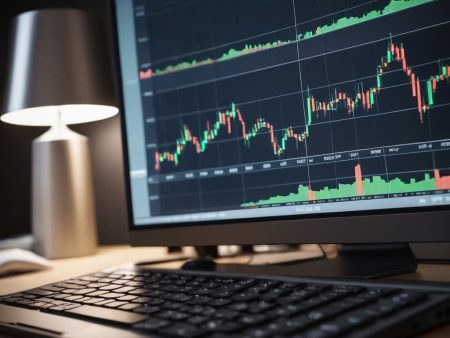Are You Ready to Master Forex Scalping? Here’s What You Need to Know
Picture this: you’re a forex trader looking to pull in quick gains. You’re not in the game for long-term trades. You’re in it for speed, precision, and small wins that stack up over time.
That’s where scalping strategy forex steps in.
It’s fast, intense, and isn’t for everyone. But if you love the thrill of quick trades and the challenge of beating the market in minutes, you might be in the right place.
Let’s break down what makes forex scalping such a go-to strategy for traders looking to make consistent gains in the forex market without getting caught up in long-term trends.
What is Forex Scalping?
Scalping is a trading strategy where forex traders aim to profit from small price movements in the forex market. A typical scalp trade can last anywhere from seconds to a few minutes, making it one of the quickest ways to trade.
Here’s how it works:
- Trade fast: Positions are opened and closed in minutes.
- Small profits, high volume: The goal is to make several small gains throughout the day.
- Leverage: Scalpers often use leverage to amplify gains.
- Focus on major pairs: Liquidity is key. Major pairs like EUR/USD are ideal.
Key Components of a Forex Scalping Strategy
A solid scalping strategy revolves around a few essential elements:
- Tight Spreads
Scalpers rely on brokers offering tight spreads. You can’t afford high spreads when your target profit is a few pips per trade. - Fast Execution
Every second counts in scalping. High-speed execution is critical, and delays can eat into profits. - Leverage
Scalpers often use leverage to increase the potential return on their small trades. Be careful, though—this also increases risk. - Scalping Indicators
Popular forex scalping indicators include moving averages, Bollinger Bands, and the stochastic oscillator. They help traders spot opportunities in real-time. - Risk Management
Even though scalping focuses on quick wins, risk management is still key. Set a stop-loss on every trade, and never risk more than a small percentage of your capital.

Is Scalping Right for You?
Before jumping into scalping, consider if it’s the right strategy for your trading style. Here’s what makes a successful forex scalper:
- Patience for short-term trades
If you thrive in fast-paced environments and can make quick decisions, scalping might be a fit. - Focus
Scalping requires laser focus. If you get distracted easily or find it hard to stick to your plan, it might not be the best fit. - Capital
Since profits per trade are small, scalpers often need to trade with larger capital to make it worth their time.
Check out our AI tool to choose the best broker for you.
How to Get Started with Forex Scalping
Ready to start? Here’s a quick roadmap:
- Choose a Suitable Broker
Not all brokers support scalping. Pick a broker with low spreads and fast execution. - Set Your Trading Plan
Decide how many trades you’ll make per day and your risk tolerance. The rule of thumb: keep it tight. - Master Your Tools
Scalpers often use tools like MetaTrader or cTrader for fast execution. Practice with demo accounts first. - Focus on Major Forex Pairs
Liquidity matters. Focus on the big pairs—EUR/USD, GBP/USD, and USD/JPY. - Practice, Practice, Practice
There’s no substitute for experience. Start with small trades until you get the hang of it.
Common Mistakes Forex Scalpers Make
Even seasoned forex traders slip up. Here are a few mistakes to avoid:
- Overtrading
Scalping is about quality, not quantity. You don’t have to be in the market all the time. - Ignoring News Events
Major news can cause volatility, and while this might seem tempting for scalpers, it can lead to big losses if not managed carefully. - Not Using Stop-Losses
A successful scalper uses stop-losses religiously. The forex market can turn against you fast.
FAQs About Forex Scalping
Q: Can beginners start with scalping?
A: Scalping is generally not recommended for beginners due to its fast-paced nature. It requires experience, focus, and solid risk management.
Q: How much money do I need to start scalping?
A: Most brokers allow you to start scalping with a few hundred dollars. However, a larger balance helps buffer against market swings.
Q: What is the best time to scalp in forex?
A: The best time to scalp is during peak trading hours when there’s high liquidity—usually during the overlap of the London and New York sessions.
Q: Can you scalp with any forex pair?
A: In theory, yes. But in practice, it’s best to focus on major pairs due to their liquidity and low spreads.
Q: Is scalping a good long-term strategy?
A: Scalping can be profitable in the short term, but it’s mentally exhausting. Some traders switch to longer-term strategies after a while.
Final Thoughts on Scalping Strategy Forex
If you’re looking for quick wins, scalping strategy forex can be a profitable choice.
But it’s not for everyone.
It takes a lot of focus, dedication, and the right tools to pull it off. And don’t forget, risk management is key.
If you’re ready to dive into the fast-paced world of scalping, start small, learn the ropes, and see if it’s a good fit for your trading style.




